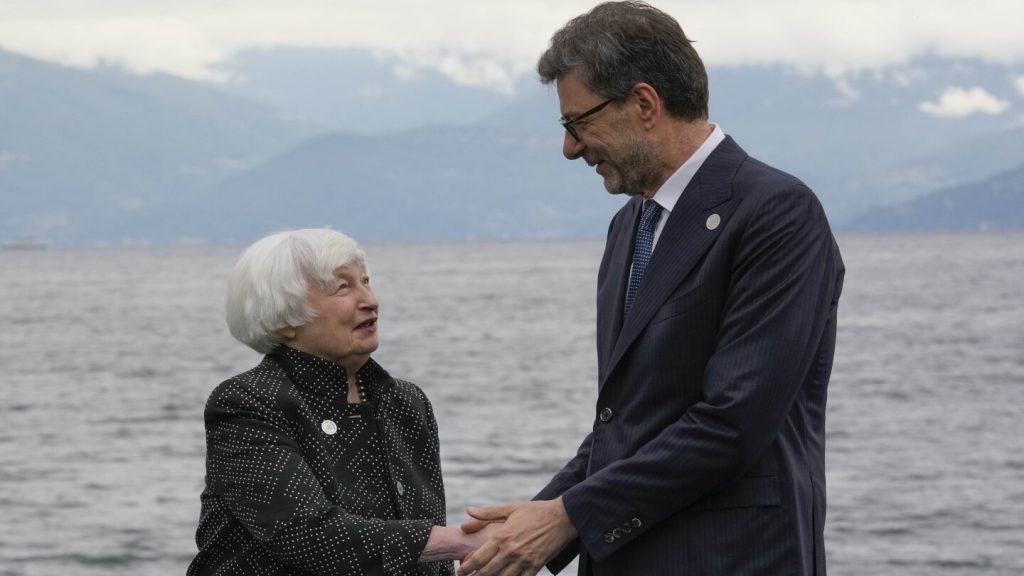Finance ministers from the Group of Seven rich democracies are meeting in Stresa, Italy to discuss ways to support Ukraine financially and to address China’s trade practices. The U.S. Treasury Secretary Janet Yellen is leading the charge to unlock money from approximately $260 billion in Russian central bank reserves that have been frozen in Europe and the U.S. since the invasion of Ukraine on February 24, 2022. With Ukraine’s finances in a precarious state due to ongoing conflict with Russia and the destruction of critical infrastructure, the urgent need for financial support has become a key focus of the meeting. The U.S. Congress has passed legislation to allow the Biden administration to seize around $5 billion of Russian assets in the U.S., while European officials are exploring options to use the interest accumulating on the frozen assets to provide support to Ukraine.
G7 finance chiefs are considering proposals to leverage future interest income from the frozen assets to provide Ukraine with immediate financial assistance, potentially amounting to $50 billion. However, extracting more money for Ukraine from the frozen assets is both a legally complex and politically sensitive issue. French Finance Minister Bruno Le Maire commended Yellen for revising a proposal that he deemed would have violated international rule of law, and expressed support for finding a solution that is legally compliant and offers sustainable financing for Ukraine. The key challenge lies in ensuring the long-term financial stability of the Ukrainian government, which requires significant funding to cover military expenses, pensions, and salaries for essential workers.
Ukraine currently allocates the majority of its tax revenue towards military expenses and requires an additional $40 billion each year to cover other essential expenditures. Despite receiving support from allies and a significant loan from the International Monetary Fund, the prolonged conflict has raised concerns about the country’s financial outlook for the coming years. Yellen has also emphasized the need for a united front against China’s state subsidies for manufacturing sectors such as solar panels, semiconductors, and electric cars. She warned that China’s vast production capacity poses a threat to both G7 and developing countries, and called for a common stance to counter China’s economic strategies.
The finance ministers are working towards making final decisions on financial support for Ukraine and addressing China’s trade practices at the upcoming G7 summit in Fasano, Italy. The success of these discussions will play a crucial role in shaping economic policies and security measures among the G7 countries. The G7, which includes Canada, France, Germany, Italy, Japan, the United Kingdom, and the United States, convenes annually to discuss key global issues and coordinate strategies for addressing shared challenges. Representatives from the European Union also participate in the G7 meetings, with a focus on enhancing cooperation and solidarity among member nations.


